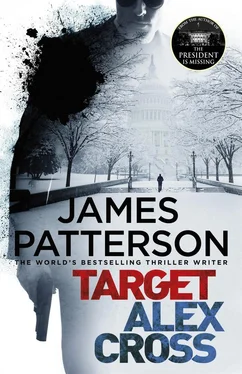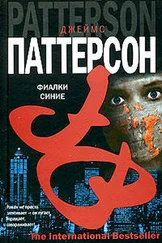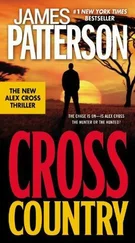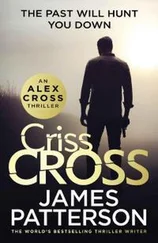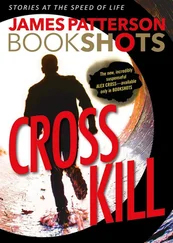He stopped in a thicket above Rock Creek itself and opened the dry bag. He found the headlamp, but he did not use it. And he tossed the hammer and chisel before feeling around for and tugging out a Bare X-Mission dry suit made tough enough and warm enough for cave divers.
Black, and made of nylon ripstop, the suit could withstand extreme climates and still keep the wearer alive. He stripped out of his wet clothes, and, teeth chattering, he struggled into the suit, booties, and gloves.
From neck to toe, he almost immediately started to warm.
Only then did Cruz fish in the bag for the hood, a dive mask, and a smaller dry bag that contained a brick of cash in various currencies, several identifications, and a small book with critical phone and account numbers. He also got out a combat knife in a sheath on a nylon-webbed belt and a small Ruger pistol in a holster before finding the first-aid kit and the antibiotics and painkillers.
Cruz figured the massive dose of antibiotics the doctors at George Washington had administered were enough to hold him for a while, but ate four painkillers and then a fifth before strapping the Ruger and the knife to his waist.
He got his arms in the shoulder straps and hoisted the smaller bag onto his back. Carrying the hood and the dive mask, he eased in the shadows, going tree to tree, until...
The assassin stopped, catching movement no more than ninety yards away. Across the creek, up on the parkway, a soldier stepped beneath a street lamp, and then more soldiers. A squad of them were moving on patrol and slowly coming his way.
With a dog.
A black and tan German shepherd.
Even in the rain, Cruz knew, the dog would alert to his scent sooner rather than later. He yanked the hood down over his battered face, fought off the urge to curse at the agony that caused, and then tugged the dive mask on. He sat and then slid feetfirst down over mud and slick leaves, losing sight of the soldiers before plunging into the rushing muddy Rock Creek itself.
With the bag on his back causing drag, Cruz had difficulty keeping his feet out in front of him. He got sideways quickly, hit a submerged rock with his hip, and was swept over it.
Then his arm snagged on a branch, and he had to struggle against the current to get free; he turned around on his back, feet leading again. It was all he could do to keep his head above the water as he searched downstream for the shape of rocks and sharper obstructions.
He hit several, all unseen, but took the blows without a sound. The raging creek was doing its job, whisking him farther and farther from that patrol.
Ahead, however, up on the parkway to his right, Cruz soon saw flashing blue lights. Above them, on the M Street Bridge, soldiers were shining powerful spotlights down into the park.
Other flashlights appeared behind the cruisers on the parkway. Another patrol of multiple soldiers were headed north toward him, shining their beams down into the creek bed, crisscrossing like so many light sabers.
When the president’s assassin realized he could die in the next few moments, he turned reptilian, cold-blooded, as he took and released several deep, sharp breaths and then plunged his head back and under the raging water. Rather than fight the current, he relaxed, let the flood have its way with him, smashing him against a boulder and then flinging him into deeper water just as the flashlight beams cut across the surface of the creek eighteen inches above him. He was soon past the soldiers on the parkway, but he remembered the ones on the bridge and stayed submerged.
Forty seconds. Fifty seconds. Sixty.
His lungs were close to bursting, but he did not lift his head until those lights had passed over him, and he was looking up through the heavily silted water at the dark underside of the bridge. Cruz surfaced, took four deep breaths, and ducked back down beneath the water.
The creek was straighter there, and he went with the flow out from under the bridge and down a long dark stretch away from prying lights. Feeling the current slow as the creek widened and deepened, he surfaced and breathed deep again.
It was remarkable just how warm he was. The suit was lined with material that reflected and trapped his body heat. The water was probably forty-five degrees, judging from the way it felt on his chin and lower cheeks, but the rest of his body might as well have been in Florida.
Twenty minutes later, he floated beneath the off-ramps from K Street and the Whitehurst Freeway. Over the thrum of rain, Cruz could hear tanks clanking up on the overpasses, and he could smell their burning diesel.
The current slowed even more as he approached the Swedish embassy, which was up on the western bank of the creek and lit up like a fortress. He swam to the opposite side of the waterway and stayed tight to its east bank until he was well clear of the place.
Beneath the Virginia Avenue bridge, he stopped and crouched in the shallows.
The lights were on ahead of him at the Thompson Boat Center. He could see Humvees and soldiers in the parking lot and imagined that others would be guarding the docks on the Potomac side.
Cruz peered down the east bank of the creek and decided he’d hang tight to it, maybe even crawl up into the brush if it looked like a better—
“Hey, what?” a man’s drunken voice said from Cruz’s left, high up the bank below the bottom of the bridge. “Frick’s that, Mikey?”
“Huh?”
“Down there, bro!” he said, and a flashlight went on.
Before Cruz could move, the beam found him. He took two strides and dived toward midstream, hearing shouts behind him.
He swam deep, let the current take him for a count of twenty, then cut left, trying to make it back to the vegetation overhanging the eastern shore. He reached it, grabbed onto roots, and lifted his head for air.
The two drunken bums under the bridge were still yelling.
“Hey! Hey, soldier man! There’s a frickin’ frogman in the creek! Frickin’ frogman in the water, dude!”
Soldiers were running toward the creek, guns up, shining their lights. They were all to Cruz’s right, and looking back toward the bridge and the men shouting. He didn’t notice the two coming from the dock side of the boathouse until their lights had found him. The assassin wasn’t sixty yards from the confluence of Rock Creek and the Potomac when the soldiers started shouting at him to freeze and put his hands up.
Cruz dived again and swam deep and blindly downstream, wishing for a surge of storm water to speed him into the Potomac.
Even submerged like that, a good six feet under, he heard the rat-a-tat-tat of automatic-weapon fire and the shrill whine of the bullets cutting through the water all around him.
Part Four
A Nationwide Manhunt
A door banged open that Saturday morning.
I startled awake, dazed and unsure where I was, and Ali rushed to my bedside and broke down crying.
“Dad,” he blubbered. “We’re all gonna die!”
I sat up, bleary-eyed, still in my clothes, and remembered I’d gotten home past three a.m. and collapsed into bed beside Bree.
I looked over at my wife, who was just stirring, and then back at my son, who was weeping with a pitiful expression on his face.
“We’re all gonna die, Dad!”
“Stop. What are you talking about?” I said, fighting a yawn.
“It’s what they’re saying on the news,” he insisted. “Larkin, he did something against Russia, China, and, like, North Korea. They think it’s war and, like, going nuclear.”
“What?” Bree said, shooting up.
I was already out of bed. I snatched up Ali and carried him downstairs into the kitchen to find Nana Mama in her robe and Jannie in her University of Oregon sweats, both staring at the big screen in the outer room where some talking head was babbling about the entire world being on the verge of war.
Читать дальше
